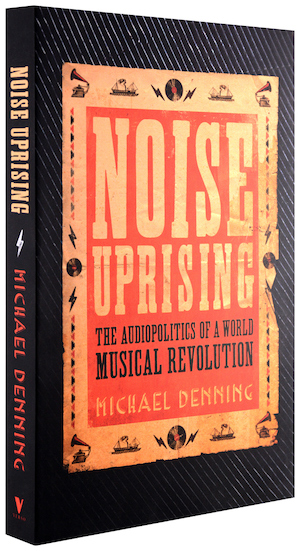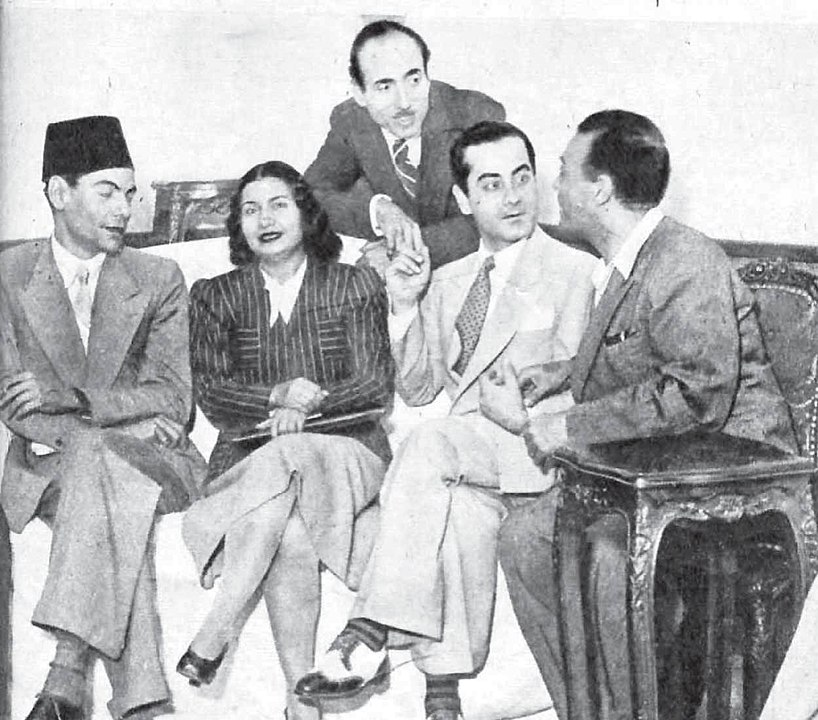The decolonized ear
A review of Noise Uprising: the Audiopolitics of a World Musical Revolution

Noise Uprising:
The Audiopolitics of a World Musical Revolution
by Michael Denning
Verso, 2015

Neil Rogall’s review was solicited by Tempest after seeing an abridged version posted on social media. While the book has been in print since 2015, the editors appreciated the politics and insights of the book, as highlighted in the review. We are grateful for Neil’s initial permission and revision and want to encourage the submission of similar reviews or pieces of writing on cultural production. – Eds.
The invention of electric recording in 1925 led, in the years before the Great Depression, to recording engineers journeying across the world seeking out music to record—to Buenos Aires, Jakarta, Bombay, Havana, Hawaii, Shanghai—and to the ports of west and north Africa. Here in the ports of the Black Atlantic, the Gypsy Mediterranean and the Polynesian Pacific new musics were emerging—Tango, Marabi, Fado, Highlife, Rebetika, Beguine, Son, Hula, Kroncong and many more. These were not folk musics, nor were they imports from their colonial masters. They were new sounds, reflecting the working-class barrios of the colonial ports “and their relations to the migrations and movements, unsettlings and uprisings in the wake of the Great War” (Chapter 6) that brought together sailors from around the world and attracted rural migrants looking not just for work and a new form of life.
New instruments and old were brought together, adapted, and improvised. The mass importation of Western musical instruments, especially the guitar, combined with instruments from local traditions. Some of the musical forms became crazes in the West, for example, Cuban and Hawaiian music, but others failed to take root. And, of course, the music from the rest of the world were heard as horrid dissonant noise by established Western musical writers and audiences.
Marxist cultural historian Michael Denning in Noise Uprising argues these vernacular musics of the late 1920s were a precondition for the anti-colonial movements and decolonization. Decolonization of the ears came before decolonization of the territory. That wasn’t because the musics were political; some were, some weren’t. Some musicians were involved in anti-colonial struggles; some weren’t. But all reflected the lives of ordinary people, the rhythms of daily life, the search for food, a roof, and love. They were the music of the streets. And the fact that they made the objects of colonialism, the colonial masses, subjects rather than objects, was crucial for imagining a world without colonial bosses, without the white man’s whip.
This is a really exciting book but you do have to get past Chapter 1, which is a bit of a shopping listing necessarily of the musics and the dates at which they were first recorded and where. Once you get past this list, this book is truly inspiring and makes me want to discover the musics I still don’t know.
The second chapter, “The Polyphony of Colonial Ports” crucially looks at steamship routes and the dramatic growth of port cities in the global South in the years between 1910 and 1930, which provided the spatial geography and the population for these new vernacular musics. Following Franz Fanon, Denning argues that these cities were always divided into native towns and settler towns and inter-districts dominated by diaspora communities. This was the seed-bed for the new sounds that emerged from below.
In later chapters, Denning charts the vital role the phonograph played in allowing the music to be disseminated in streets, bars, and dancehalls. What surprised me was the relatively low cost of them, which made them obtainable for workers with a regular income. He also discusses the development of jazz as one of these vernacular musics. In fact, one of the highlights of the book is the way he can move from Louis Armstrong to Umm Kulthum, a singer who broke with Egyptian royals to back the Egyptian nationalist movement in the 1940s, in the same sentence.

The chapter “‘A Noisy Heaven and a Syncopated Earth’: Remaking the Musical Ear” is as revelatory a piece of writing as I have ever read. I particularly enjoyed his discussion of what “improvisation” actually is and the way it was seen as “cheating” by Western music critics in the 1920s and 1930s.
His final chapter discusses first the way these musics were re-imagined as ‘national musics’ by the post-colonial states, as symbols of national culture when they had originally been denounced as foreign and alien imports. Denning finally looks at the way that these same vernacular musics were repackaged again this time as “world music” in the 1980s aimed at the global north at the beginning of the current wave of globalization.
All in all this is a truly wonderful book and it was entertaining as well, especially in the way he engages in dialogue with all those who hated these musics, especially Adorno. I have got so much pleasure from it and learned so much.
Featured Image Credit: Photo by Kristina Just Image modified by Tempest.
Categories
We want to hear what you think. Contact us at editors@tempestmag.org.
Neil Rogall View All
Neil Rogall is a revolutionary socialist based in Britain. He has been active in the fight for Palestine freedom since 1969. He is also a member of rs21 (revolutionary socialism in the 21st century) and the author of the pamphlet Israel: The Making of a Racist State, whose second edition is forthcoming from rs21.
